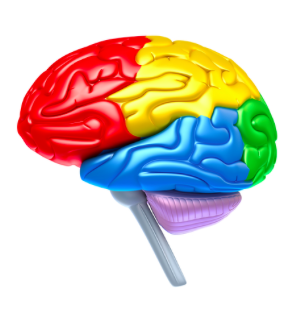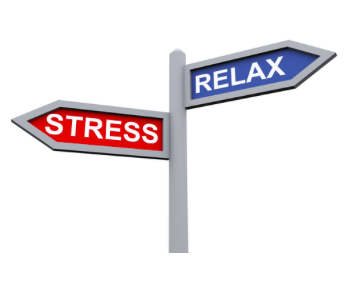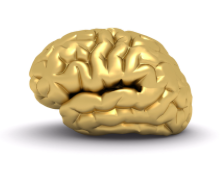Testosterone: Understanding the Mechanisms Behind the “Alpha” Hormone
Everybody's familiar with testosterone, the grand daddy hormone most synonymous with both muscle and manhood. Today we provide a comprehensive ...

Everybody's familiar with testosterone, the grand daddy hormone most synonymous with both muscle and manhood. Today we provide a comprehensive ...
1. Margarine Not because it’s a fat. Real butter from grass fed cows is high in fats (good fats) like ...
The hormonal and metabolic processes that occur during sleep The three primary factors to consider for those seeking muscle hypertrophy ...
We've all seen the Bruce Lee-types, the small men with profound strength, and the contrary, muscle men that are all ...
Just because that insane workout technique sounds excruciatingly awesome, that doesn't mean you should add it into your routine. You ...
In their eagerness to increase strength and build muscle, most devoted iron trainees will ceaselessly pound down the protein, carbs, ...
Question: “Is there an optimal amount of Time Under Tension (TUT) to shoot for each set?” When trying to maximize ...
In the pursuit to naturally increase T-levels, many have turned to testosterone boosters. Today we address their validity, while laying ...
Cinnamon, one of the most undervalued, underestimated, and under-appreciated supplements around. When taken at effective doses, it packs a very ...
In what situations should I take carbs pre-workout? There is no situation where you NEED pre-workout carbs, but there are ...
Whey protein has been used in one form or another for at least 300 years, yet it has taken until ...
In a startling feat of biological engineering, our body must involuntarily produce an array of chemicals to promote specific actions ...
 In a startling feat of biological engineering, our body must involuntarily produce an array of chemicals to promote specific actions which stimulate cells to adapt. For example, the hormone testosterone is released in response to a biological demand for more muscle mass needed to overcome increasingly more intensive workloads.
In a startling feat of biological engineering, our body must involuntarily produce an array of chemicals to promote specific actions which stimulate cells to adapt. For example, the hormone testosterone is released in response to a biological demand for more muscle mass needed to overcome increasingly more intensive workloads.
Cortisol, our ‘stress’ hormone, is one of the hormones released following perceived threats, to activate our fight or flight response to increase our chances of survival. Indeed, the sheer complexity of the seemingly countless chemical reactions that constantly take place in the human body is such that scientists are far from determining the full extent to which our natural pharmacy controls our myriad biological processes.
Take the delicate interplay between arousal and relaxation, the necessity to at turns become energized to accomplish a task and and at others relaxed to promote recovery, both physical and mental.
While a constant state of high alert and unbridled enthusiasm may, if not balanced with sufficient rest and recovery, lead to mental and physical burnout, on the other hand, an overly laid-back and relaxed demeanor may result in stagnation and little gain. Although there are those that tend to function at either one of these  extremes, such as the perpetually-stressed Type-A-overachiever with the hair-trigger temper, or the sloth-like underachiever with no ambition, most of us navigate life in a more balanced and adaptable fashion.
extremes, such as the perpetually-stressed Type-A-overachiever with the hair-trigger temper, or the sloth-like underachiever with no ambition, most of us navigate life in a more balanced and adaptable fashion.
Included among the many processes responsible for inspiring action and relaxation at adaptive intervals is our dopamine/serotonin system. Unlike the energizing neurotransmitter dopamine, which promotes pleasure-seeking behaviors, and stimulates confidence and aggression, serotonin is a calming chemical, which acting on the central nervous system, produces feelings of pleasure and contentment. [10]
Optimal serotonin secretion also plays an undervalued role in bodybuilding; in particular its effects on a diverse number of bodily systems promote proper digestion, appetite control, sleep, relaxation, mental stability, and increased performance.
The Science
Principally synthesized from the common amino acid tryptophan in the raphe nuclei of the brainstem, serotonin, in addition to regulating mood, appetite, and sleep, also has cognitive functions, influencing learning and memory. [4][10] Serotonin is also produced in the pineal gland of the brain, and the enterochromaffin cells of the gastrointestinal tract. In fact, between 80-90% of our serotonin is localized in the gastrointestinal tract, where it is used to regulate intestinal movements.[9][4] In the central nervous system, serotonin is for the most part neurochemically responsible for modulating other neurons so they do not become overly stimulated. [10] Serotonin (a.k.a. 5-Hydroxytryptamine – 5-HT) is colloquially referred to as our ‘feel-good’ hormone, and this title is well deserved, since chronically low levels of serotonin are thought to be involved in depression. [3] Additionally, because it does not pass the blood-brain barrier, serotonin must be synthesized endogenously.
We seldom correlate serotonin’s benefits with an ability to regulate the intake of food, yet its role in digestion is unmistakable. In fact, without sufficient serotonin, satiety is difficult to achieve, and the foods we do eat will not be properly digested. Whenever we ingest food, serotonin is released to control the contractions that push it through to the small intestine, where nutrients are absorbed and utilized. Serotonin also affects how sensitive our intestines are to feelings of pain and fullness, both of which influence digestion and appetite. [1] Provided our serotonin is optimally balanced, we may experience sound digestion and nutrient absorption, however, if serotonin is too high or too low, we may become constipated or experience diarrhea, and may even wind up with a case of irritable bowel syndrome (IBS).[1]
Appetite Control
An excessive caloric intake can spell disaster for the dieting bodybuilder; adequate levels of serotonin may help curb excessive hunger. For serotonin to be released, the right conditions must be in place. One of these conditions is the intake of sweet or starchy carbohydrates. Whenever we consume carbs, we produce serotonin, which in turn suppresses appetite and restricts further carb consumption (at least this is how it is supposed to work). However, for people who cannot produce enough serotonin, carbohydrates do not have the same appetite blunting effect, and as a result, more carbs are needed to elicit a “normal serotonin response”.
As well as keeping stress levels down and mood sufficiently elevated, serotonin also promotes restful sleep by regulating the sleep/wake cycle (our circadian rhythm). [5] Serotonin levels are at their highest when we are fully awake and aroused, and lowest during the opposite time, during deep sleep. Regulated by sunlight, serotonin is released in waves so as to ensure we fall asleep at the right times and remain alert and vital when awake.
A serotonin imbalance will disrupt this natural pattern and prevent us from getting the revitalizing, restorative sleep we need to recover from intensive training sessions and long days.[9]
How To Boost Serotonin
Enhancing digestion to provide the nutrients needed to train hard and recover following intensive workouts, cultivating feelings of euphoria and enthusiasm necessary for full-force workouts, and aiding sleep so we may experience optimal recovery, all require your serotonin levels to be optimized. The following steps will help you to maximize your serotonin production.
That’s All Folks!
 Of the vast number of unique life-sustaining chemicals circulating in our body, serotonin is one of the more complex and multifarious. In addition to the above-noted functions, serotonin plays a role in breathing and heart rate regulation, and is partly responsible for activating blood clotting mechanisms.[9] Important for lifters, the right balance of serotonin is integral to nervous system function and muscle contraction and growth. [2][6][8][9] If you feel anxious, depressed, or have experienced a reduction in exercise performance, you might consider pumping up your serotonin along with your guns.
Of the vast number of unique life-sustaining chemicals circulating in our body, serotonin is one of the more complex and multifarious. In addition to the above-noted functions, serotonin plays a role in breathing and heart rate regulation, and is partly responsible for activating blood clotting mechanisms.[9] Important for lifters, the right balance of serotonin is integral to nervous system function and muscle contraction and growth. [2][6][8][9] If you feel anxious, depressed, or have experienced a reduction in exercise performance, you might consider pumping up your serotonin along with your guns.
References